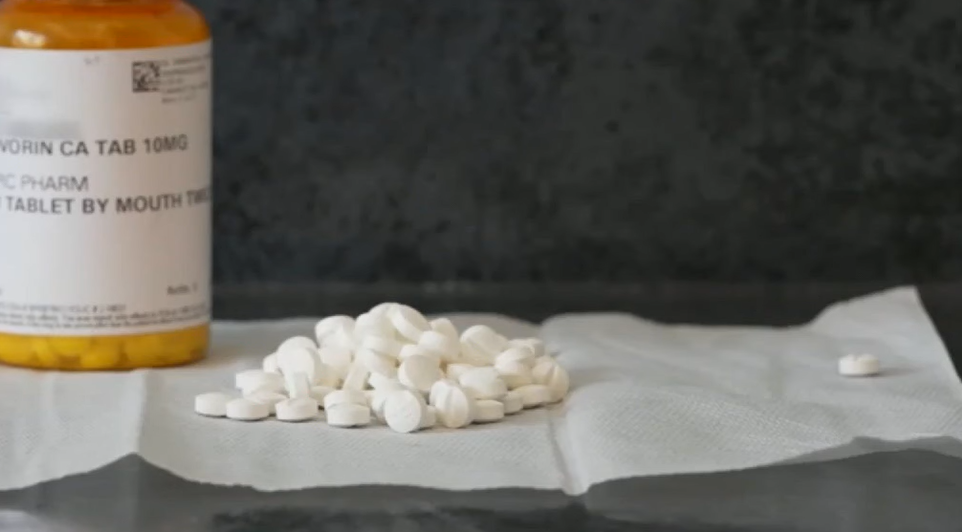More than just a life-saving treatment, leucovorin has come to represent the relationship between pharmaceutical production, patient needs, politics, and public confidence. Initially marketed by GlaxoSmithKline under the Wellcovorin brand, the medication provided anemia relief and protected chemotherapy patients from the harmful side effects of methotrexate. However, today, several manufacturers work together to maintain the supply of this medication in pharmacies and hospitals, guaranteeing its availability even in the face of frequent shortages.
Teva, Meitheal Pharmaceuticals, Hikma, and Fresenius Kabi have emerged as key participants. While Hikma’s injectable lines strengthen supply stability, Fresenius manufactures injectables that are still essential in oncology units. Meitheal’s injections filled in the gaps caused by other suppliers’ shortages. As the industry leader in generics, Teva produces tablet formulations that are surprisingly less expensive for patients than their branded counterparts. When taken as a whole, they form a patchwork network that keeps patient care going across continents.
Even though GSK is no longer producing leucovorin, it still owns the original New Drug Application. This information is significant since GSK continues to have regulatory control and recently revealed plans to update the label for cerebral folate deficiency at the FDA’s request. Because of that ruling, leucovorin became the focus of new discussions. All of a sudden, a medication that was once thought to be only helpful in the treatment of cancer is now being promoted as possibly helpful for some neurological disorders, especially in young patients.
Table: Leucovorin Manufacturer Profile
| Category | Details |
|---|---|
| Drug Name | Leucovorin (Folinic Acid, Wellcovorin) |
| Primary Use | Chemotherapy adjunct, methotrexate toxicity rescue, anemia treatment, cerebral folate deficiency research |
| Original Brand Holder | GlaxoSmithKline (Wellcovorin NDA holder) |
| Current Manufacturers | Fresenius Kabi, Hikma, Meitheal Pharmaceuticals, Teva Pharmaceuticals |
| Formulations | Injection (Fresenius, Hikma, Meitheal), Tablets (Teva), Original brand (GSK, no longer manufactured) |
| FDA Status | Approved for cancer-related indications; label update requested for cerebral folate deficiency (2025) |
| Key Controversy | Off-label use in autism treatment, limited scientific trials, political attention |
| Industry Trend | Increased generic production, drug shortages, debates over new therapeutic roles |
| Reference | GSK Official Page – https://www.gsk.com |

This change has been exacerbated by the conversation about autism. Despite the scant evidence, political leaders such as President Trump and Robert F. Kennedy Jr. have publicly hailed leucovorin as a promising treatment for autism spectrum disorders. The hope is emotionally potent for families. However, the evidence is still insufficient for scientists. There are only a few small trials, and the results are not consistent. When celebrities promote wellness practices that create a cultural buzz without having full scientific validation, the situation is remarkably similar.
The ramifications for manufacturers are profound. Demand may be fueled by increased attention, but supply chains that are already vulnerable may be strained. Hospitals are rushing as a result of Fresenius Kabi shortages that have occurred without explanation. In contrast, Hikma has received praise for maintaining steady supplies during times of need. Patients are directly impacted by these variations, serving as a reminder to society that even extremely effective supply chains can falter in the face of unforeseen demand. Similar to abrupt fashion trends brought on by the choices of celebrities, shortages have a cascading effect that turns access into a privilege rather than a given.
Teva’s generics have been particularly helpful in expanding access, particularly for patients who might not otherwise be able to pay for care. Teva guarantees a baseline of availability that is advantageous to patients and healthcare systems by diversifying formulations and maintaining competitive costs. Because they are so successful at lowering the cost of essential treatments, generics serve as the unsung heroes in this regard. However, Teva is unable to protect patients from worldwide disruptions in the sourcing of raw materials or changes in regulations.
The cultural metamorphosis of leucovorin is comparable to the self-reinvention of legacy stars. Initially used as a companion to chemotherapy, it is currently being discussed as a possible neurological treatment. This reinvention shows how older medications can continue to be especially inventive by adjusting to new situations. Leucovorin has demonstrated that it can go beyond its initial intent, much like an experienced musician discovering new significance through partnerships with up-and-coming artists.
Leucovorin’s manufacturing companies deal with different financial realities. Despite its ongoing debt struggles, Teva is still a vital component of generic supply. In order to continue being essential to hospitals, Fresenius Kabi makes use of its global injectable portfolio. Hikma benefits from being regarded as incredibly dependable as it expands its presence in the United States. Despite being smaller, Meitheal builds credibility by filling in when there are shortages. Although each manufacturer is establishing their own niche, taken as a whole, they offer patients a cooperative safety net.

